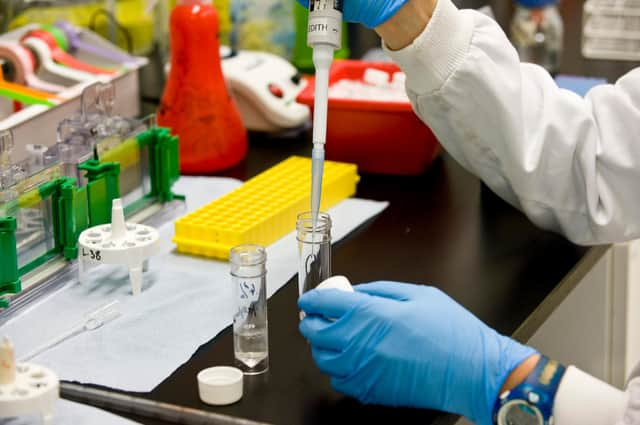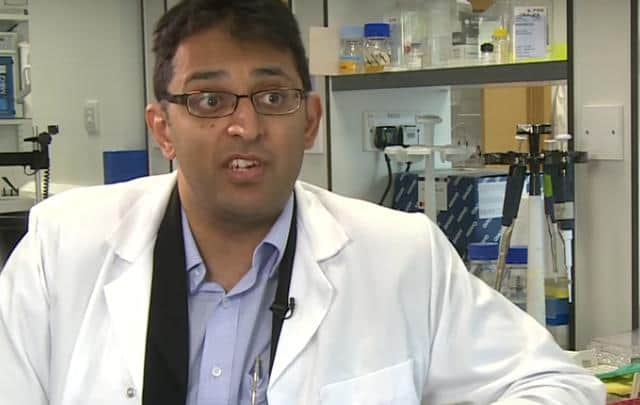Two drugs from Scottish pharmaceutical company to be tested as potential COVID-19 treatments in Edinburgh


Two drugs already being trialled for treating cancer and rheumatoid arthritis could be used to treat COVID-19 if tests at a University of Edinburgh project prove successful.
Dundee-based pharmaceutical company Cyclacel have announced two of their drugs, fadraciclib and seliciclib, will be tested as potential coronavirus treatments as part of the ongoing STOPCOVID project.
Advertisement
Hide AdAdvertisement
Hide AdThe drugs are believed to reduce the worst damage caused to lungs of coronavirus patients by reducing the ability of the virus to cause an overactive inflammatory response.


Professor Kev Dhaliwal, the STOPCOVID lead and consultant in respiratory medicine at the University, said he was “eager” to test the drugs and that clinical data indicates they could be effective in reducing the impact of “early peripheral blood neurophil response”, a type of white blood cell response to infection.
He said: “Clinical data from international studies suggest that an early peripheral blood neutrophil response is associated with a poor outcome in COVID-19.
“If we can stop the inflammatory cascade early, we may be able to prevent or delay the severity of COVID-19 induced inflammation and the need for assisted ventilation in affected patients.
Advertisement
Hide AdAdvertisement
Hide AdSpiro Rombotis, president and chief executive of Cyclacel, said: “We are excited to be contributing fadraciclib and seliciclib to the global effort to combat COVID-19.
“Seliciclib is active in models of lung injury, pleurisy and rheumatoid arthritis and is undergoing clinical investigation in patients with rheumatoid arthritis.
“We are looking forward to working with The University of Edinburgh team and are humbled by the possibility of helping COVID-19 patients in need.”
STOPCOVID, which includes around 150 scientists at the University’s Centre for Inflammation Research, is in the process of testing existing and experimental drugs in the hope of finding an effective COVID-19 treatment.
Advertisement
Hide AdAdvertisement
Hide AdFocusing on so-called ‘inflammatory pathways’, the project will aim to reduce the most severe aspects of COVID-19 in any new drug.
Drugs will be tested to see if they block this and other types of inflammation in the early stages of the disease in the hope that it could change the course of infection and prevent the need of a ventilator.
The team believe new treatments could be made available before a vaccine becomes widely available, mainly due to the use of repurposed drugs for other conditions which are already in clinical use or in the testing phase.
Comment Guidelines
National World encourages reader discussion on our stories. User feedback, insights and back-and-forth exchanges add a rich layer of context to reporting. Please review our Community Guidelines before commenting.